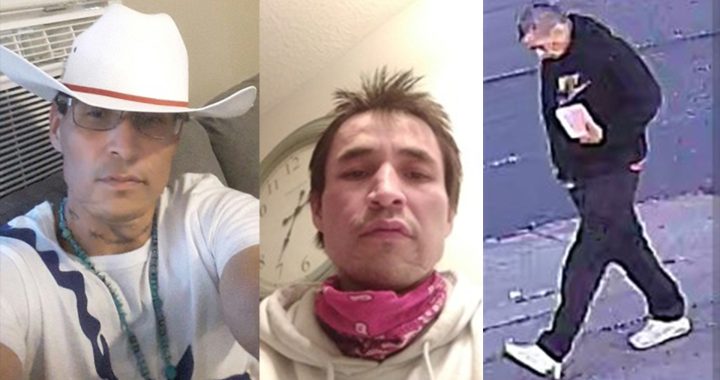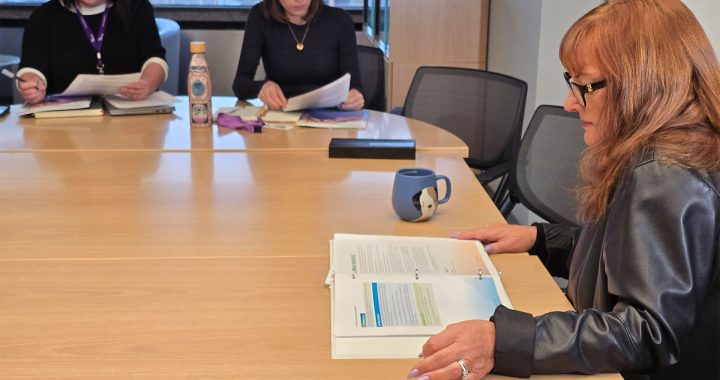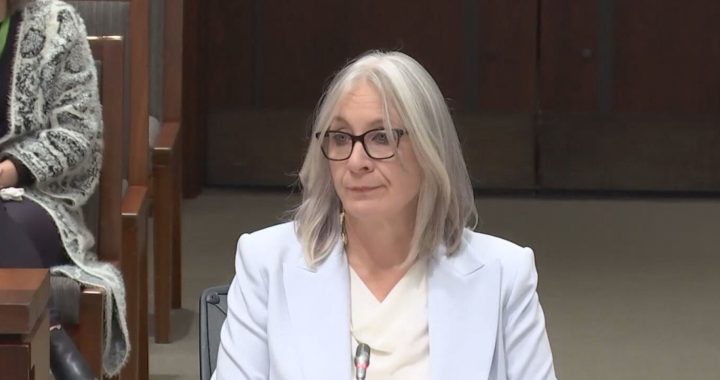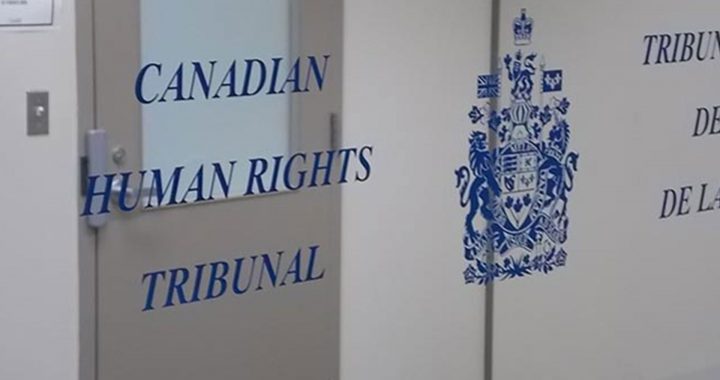Killulark Arngna’naaq insists that Inuktitut is best taught by learning through experience.
“The only way mimic stuck with me was with butchering [tuktu-caribou] with my Dad – practical application. If someone had said it to me in a classroom I wouldn’t have learned it,” Arngna’naaq said.
Originally from Qamanit’uaq (Baker Lake) Nunavut, she’s Kivallirmiut (Caribou Inuit) but grew up hundreds of kilometers away from her traditional territory, in Yellowknife, where Inuktituk nonexistent in the school curriculum.
Motivated to connect with her culture, she’s immersed herself in learning and exploring institutional barriers to Indigenous language revitalization in the Northwest Territories.
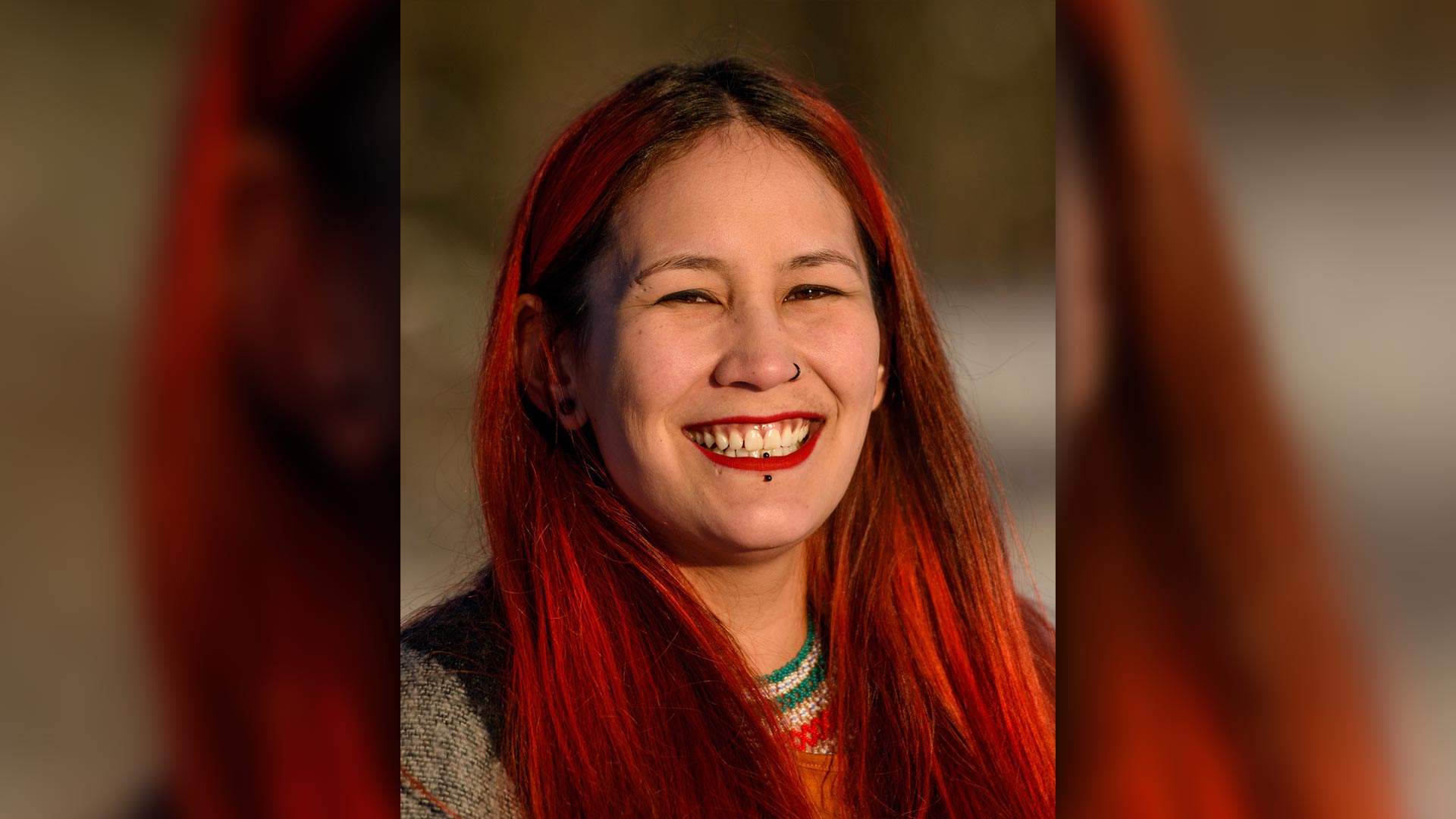
Arngna’naaq is one of fifteen northerners age 25-35 who spent 18 months with the Jane Glassco Northern Fellowship.
The program is delivered through the Gordon Foundation, a charitable organization that trains young leaders from the territories, Nunavik and Nunatsiavut how to tackle public policy on important issues to them and their community.
Arngna’naaq used her expertise as a chartered accountant and Inuktitut learner to change the federal tax act.
“There’s this law in charitable regulation that basically says, if money goes into the charitable sector it can either be spent by the charity or go to another charity. For me, in my experience that is really restrictive for people that are actually doing language teachings and learning work,” she said. According to Arngna’naaq , many language teachers in small Inuit communities may be connected with a charity so they would not be eligible to receive money from a charity for language work.
Arngna’naaq took issue with what she saw as unrealistic expectations held by the federal governments in assuming that individuals skilled in language revitalization are also skilled in reviewing tax law and charitable compliance regulation.
Her review found a recent government focus on Indigenous language revitalization and the federal money that is promised for it. However, she also saw the red tape in how organizations that are not registered charities have a tougher time accessing money.
According to Arngna’naaq , the way the tax code is written, it deters Inuktitut language teachers from ever getting the money they need to teach.
She said while some charities will share their federal money – they can only do so with other organizations that are registered with Canada according to Canada’s tax code – while others, for various reasons have not registered because of lack of personnel and administrative support.
When it comes to applying for money to teach a language, Arngna’naaq said the current system in place favours the application reviewer in its set up and is less functional for the applicant.
This is one way which she believes federal systems undervalue language revitalization.
“First off, funding is limited and that just is what it is. It creates competition between different programs which I think should be working together instead of competing for funding,” said Arngna’naaq .
“The application and reporting requirements [for the Aboriginal Languages Initiative application] are structured in a really difficult way. They [Canada Heritage department with the federal government] frame what they perceive to be language teaching, and list different requirements for what is language teachings. They essentially define it, but I don’t think that’s appropriate for funding applications to be defining what is language teaching when there is such a cultural component to it,” she said.
Arngna’naaq proposed Canadian charitable laws to deregulate the charitable re-granting requirements. This would allow for individuals doing language work to have contributions made to them on behalf of charities so they could promote language learning in a way they see fit.
Through the fellowship, she explored how many northern grassroots are unable to access federal dollars because they do not have the staff to take on the extensive review and scrutiny by the CRA for charitable funding.
“Specifying the need for recipients to be registered charities or qualified donees for individuals and organizations working in language revitalization, in order to allow for free resource exchange between the philanthropic sector and entities completing the work,” she said.
For Kristen Tanche, the salient need of northern policy to be established by the people it governs was paramount to both her research and final paper.
Having recently graduated with a Bachelor of Social Work degree from Aurora College, she wanted to continue with her education through the Jane Glassco Northern Fellowship Cohort 2018-2019.
“The north is really small so you see a lot of people doing amazing work. Knowing some of the alumni and seeing the good work and impacts they were making, how they were helping their people made me want to apply,” Tanche said.
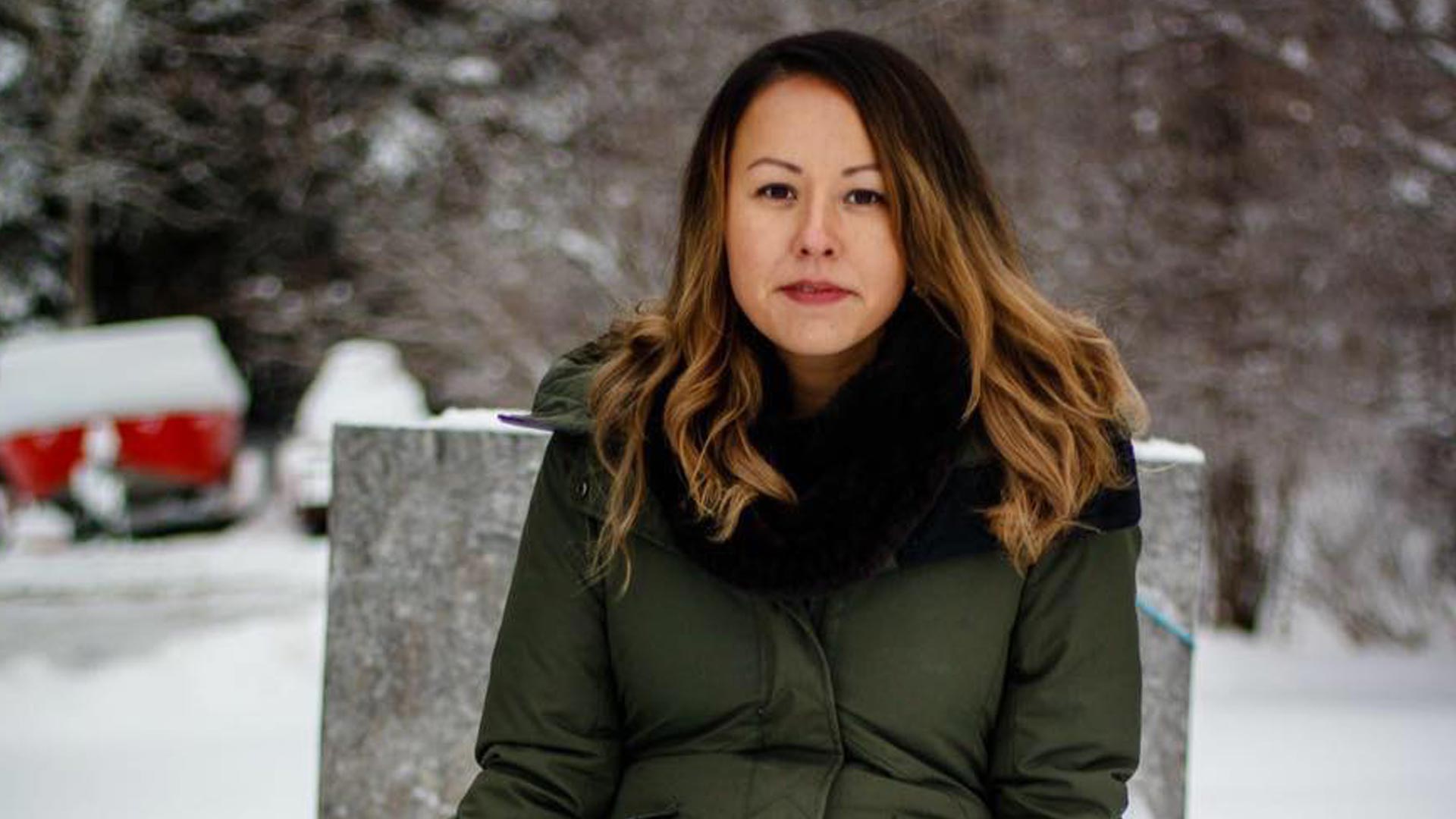
She painstakingly wrote and revised over 100 pages of transcription, academic research, policy and recommendations focused on the dire need for localized addictions programming in her home community of Líídlįį Kúę – Fort Simpson, NWT.
This hard work and experience gained from the fellowship paid off. She was offered the position of regional wellness coordinator for Dehcho First Nations, working directly on the issues she explored in her policy paper.
“As we [Jane Glassco cohort] were in Ottawa speaking with different politicians, while wearing my moccasins and introducing myself in Dene Zhatıé I was remembering the reason why I do the things I do – having to participate in western systems while being true to my indigenous values. For me that was a huge take away,” she said.
Tanche wanted “community driven” policy recommendations reflective of the residents from Fort Simpson. To access that information she went to the source, interviewing 30 individuals on which addictions services fulfilled and failed the needs of their community. Once completed, she poured over transcriptions, found common themes and craft her recommendations based on evidence collected.
For Tanche, she noted her experience with the fellowship, both on the ground interviewing community members and the regional meet ups, team building activities and friendships developed amongst her cohort as a once-in-a-lifetime-experience
“Collectively everybody’s voices. Even just talking about it gets me emotional all over again. Because it’s not just me, it’s the entire community, our entire region. I get emotional when I speak about it because they’re all so inspiring and they all had such amazing ideas,” she said.
From her fellowship, Tanche made the lead recommendation that the territorial government and community of Fort Simpson evaluate the current status of addictions programs and services, and provide additional staffing and counsellors. Her paper also suggested the Dehcho Region should deliver regional health gatherings led by communities for communities and organizations in Fort Simpson diversify culturally relevant programs and services.
Although the delivery of the fellowship will be mostly virtual, both Tanche and Arngna’naaw will have the opportunity to connect with the new cohort, and have their policy papers promoted by the Gordon Foundation, to share their recommendations on how to create a healthier north through language and healing.





